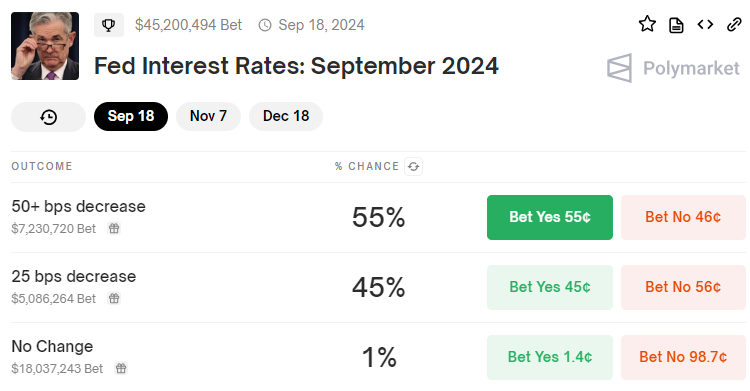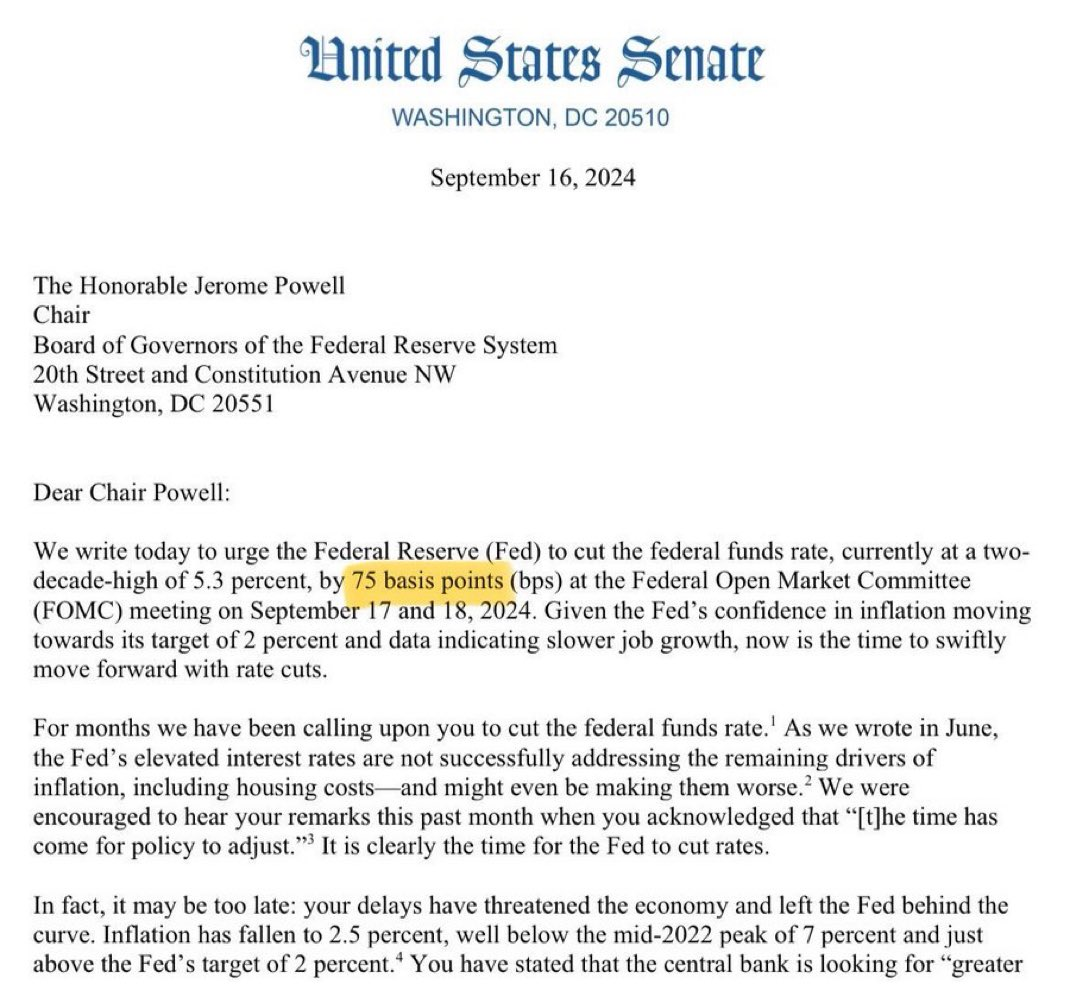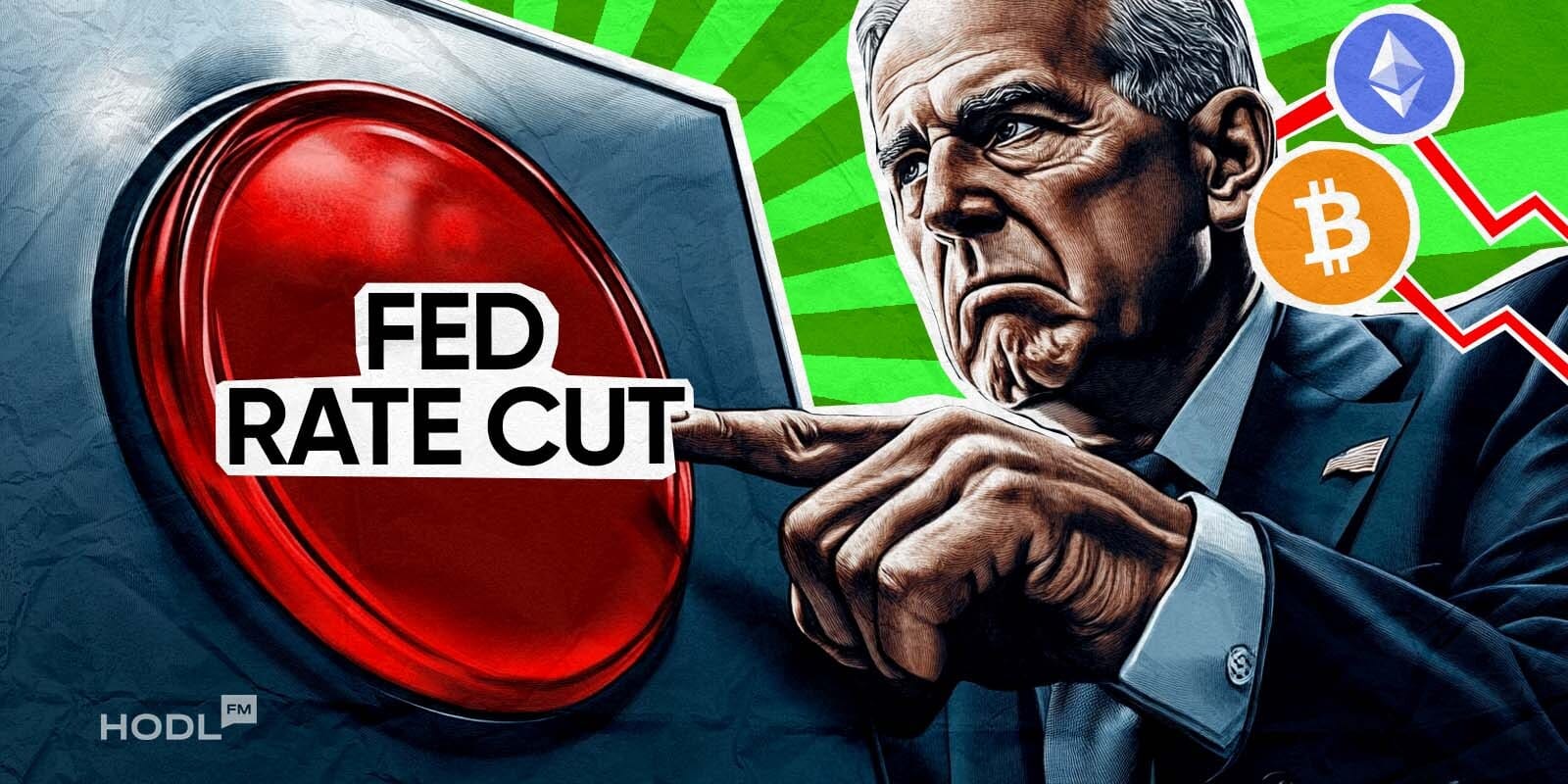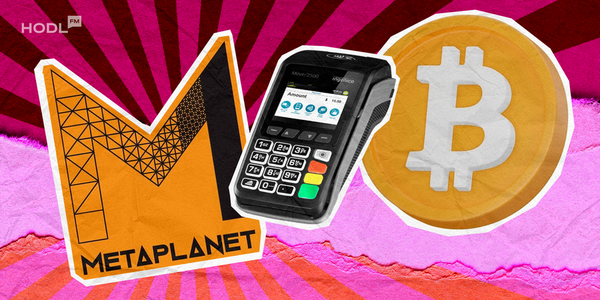The Bitcoin market is bracing for a wild month as the much-anticipated U.S. Federal Reserve interest rate cut looms large and ominous.
The dip arrived sooner than expected, with speculation swirling around the Fed’s potential rate cuts, shaking up market sentiment. Bitcoin kicked off the week with a 3% drop, slipping below $58,400. Ether (ETH) didn’t fare any better, plunging 5.5% in the last 24 hours, making it its worst single-day fall since early August.
Most market players expect a 25 basis point cut, but the chatter continues: what if the Fed gets bolder with a 50 basis point reduction? That could send volatility through the roof.
More: Bitcoin Price Prediction - Odds In Favor of Bulls
Polymarket's gamblers are putting their money where their guesses are, giving a 55% chance to a 50 basis point cut, a 42% chance to a 25 basis point trim, and a mere 1% to no change at all.

Fun fact: If we see a Fed rate cut this Wednesday, it would be only the second time in Bitcoin's history that it happened!
Fact : if we see a FED rate cut on Wednesday, it will only be the second time in Bitcoin's history that this happens pic.twitter.com/wnu07V0PQd
— Bitcoinsensus (@Bitcoinsensus) September 16, 2024
25 bps vs. 50 bps
The looming Fed rate cut has stirred up some serious uncertainty in the crypto market. Historically, rate cuts have been seen as a bullish signal for Bitcoin — after all, looser monetary policy tends to weaken the U.S. dollar and boost demand for alternative assets. But this upcoming cut? Well, it might not be the simple win it’s cracked up to be.
A more aggressive 50 basis point cut could signal deeper economic issues than a 25-point trim. Bigger economic problems could cause panic among investors, leading to a sell-off of risky assets, including Bitcoin, in search of safe havens.
So, why might Bitcoin, which usually thrives on looser monetary policy, face mixed outcomes from the Fed's decision this time around?
Typically, when the Fed cuts interest rates, Bitcoin tends to get a boost. A weaker U.S. dollar makes alternative assets like Bitcoin look pretty attractive. But this time around, things might not be so straightforward, thanks to some heavy economic clouds on the horizon. Bitcoin’s volatility could increase due to uncertainty over how the market will interpret the Fed’s actions and their impact on the economy.
After aggressively hiking rates in 2022 to combat inflation, the U.S. economy has started to show some cracks, like a weaker labor market and slowing GDP growth. A rate cut now might hint at deeper economic issues, which could spook investors and make financial markets, including Bitcoin, more unstable.
With uncertainty caused by worsening economic indicators, investors may become more cautious and inclined to sell risky assets, including Bitcoin. This may lead to increased volatility.
Bitcoin has a bit of a split personality. Sometimes it acts like a safe haven, and other times it’s more of a risky asset. This double nature makes it hard to predict how Bitcoin will behave during economic instability.
So, the Fed’s rate cut could have mixed results for Bitcoin, depending on a cocktail of factors like economic uncertainty, potential aggressive Fed actions, and Bitcoin’s unpredictable behavior. In the short term, expect more volatility and shakiness. But in the long run, Bitcoin’s value as an alternative to traditional currencies might still shine through.
Here’s a twist you didn’t see coming. Bitcoin’s biggest critic is calling for a whopping 75-point rate cut! Senator Elizabeth Warren, alongside fellow Democrats John Hickenlooper and Sheldon Whitehouse, wrote a letter to Fed Chair Jerome Powell.

Their bold proposal cites a softening labor market and higher unemployment rates as reasons to cut big. If this goes through, it could help not only traditional markets but also crypto.
Don’t get too gloomy, though. Despite short-term turbulence, Bitcoin’s long-term advantages, like its decentralized nature and fixed supply, could help it weather the storm. In the end, Bitcoin might just come out ahead, proving its value as a hedge against inflation and economic instability.

Disclaimer: All materials on this site are for informational purposes only. None of the material should be interpreted as investment advice. Please note that despite the nature of much of the material created and hosted on this website, HODL FM is not a financial reference resource and the opinions of authors and other contributors are their own and should not be taken as financial advice. If you require advice of this sort, HODL FM strongly recommends contacting a qualified industry professional.





